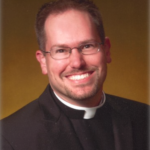11/3/2023
Interpreting the Report From the Synod of Bishops
 Fr. Rich Andre, CSP
Fr. Rich Andre, CSP
November 3, 2023
 Fr. Rich Andre, CSP
Fr. Rich Andre, CSP
November 3, 2023
The October 2023 Synod of Bishops, part of the worldwide 2021-2024 Synod on Synodality, is over. You can find the final report written by the participants of this month’s meeting at https://www.synod.va/en/news/a-synodal-church-in-mission.html. Here’s an article summarizing it: https://www.usccb.org/news/2023/synod-synthesis-shows-agreement-divergences-including-synodality.
For many members of the Paulist Center, especially those who were here when our Sunday worshipping community took form in 1969 through the early 1980s, this report may feel quite disappointing. Two-thirds of a bulletin page isn’t sufficient to cover everything, but I urge everyone to continue to have hope. There are two important things to keep in mind.
First, we are interpreting everything through an American lens. We must remember that Catholics in the United States are only 6% of the world’s Catholics. A sizable majority live in the developing countries, many where the cultural roles open to women are limited, and some where people who identify as LGBTQIA can face imprisonment or death. For our community in which women play a significant role, it is disheartening that the report merely calls for more study of allowing women in the diaconate, especially since Pope Francis had previously set up two commissions to study that same issue. Even more disappointing to our community that welcomes all people is to hear that more than a third of the members of the Synod weren’t comfortable including any of the words in the LGBTQIA abbreviation in the final report.
Second, we must recall that this 4-week meeting is part of much longer processes. It concludes the second year in a 3-year process whose goal isn’t so much to reform the Church as to try to make the Church permanently more consultative and less hierarchical. And the synodal process itself can be seen as part of the century-long struggle to implement the reforms called for by the Second Vatican Council (1962-65).
So many of us are marginalized by the Church. We can be frustrated by how slowly and haltingly the Church is heeding Francis’ call to listen to those on the peripheries who, more and more, are becoming the majority. There are hundreds of millions of others in the Church who are marginalized in other ways. The synodal process this past month was unprecedented in bringing together Church leaders — including lay voting delegates and non-voting non-Catholic participants — from around the globe to hear one another’s stories in small groups for an entire month: not just those who spoke on behalf of women, LGBTQIA people, and the divorced and separated. They also spoke on behalf of the poor, of those without adequate healthcare, of those most affected by climate change, and of those abused and abandoned by violent and corrupt governments. The report they produced is chock full of ideas that would have been considered radical only a decade ago!
Maybe I’m naïve. (Maybe it’s partially because I’m the first priest to serve at the Paulist Center who was born after Vatican II?) Nevertheless, I wholeheartedly believe that the Holy Spirit is present in the synod process, and is present here locally in our good work that is more necessary than ever. In the words of Paulist founder Isaac Hecker, the Spirit continues to lead us forward “to a future brighter than any past.”